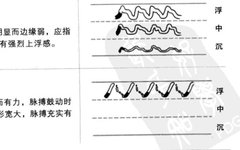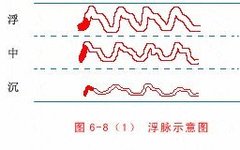Differences Between Floating Pulse and Similar Pulses: How to Distinguish Them?
Introduction: How can we distinguish between Qiao Mai (Floating Pulse), Hong Mai (Surging Pulse), Xu Mai (Weak Pulse), Ru Mai (Soft Pulse), San Mai (Scattered Pulse), and Wei Mai (Minute Pulse), which are all types of floating pulses? The Floating Pulse is characterized by a light and clear upward floating sensation, akin to the pure … Read more










